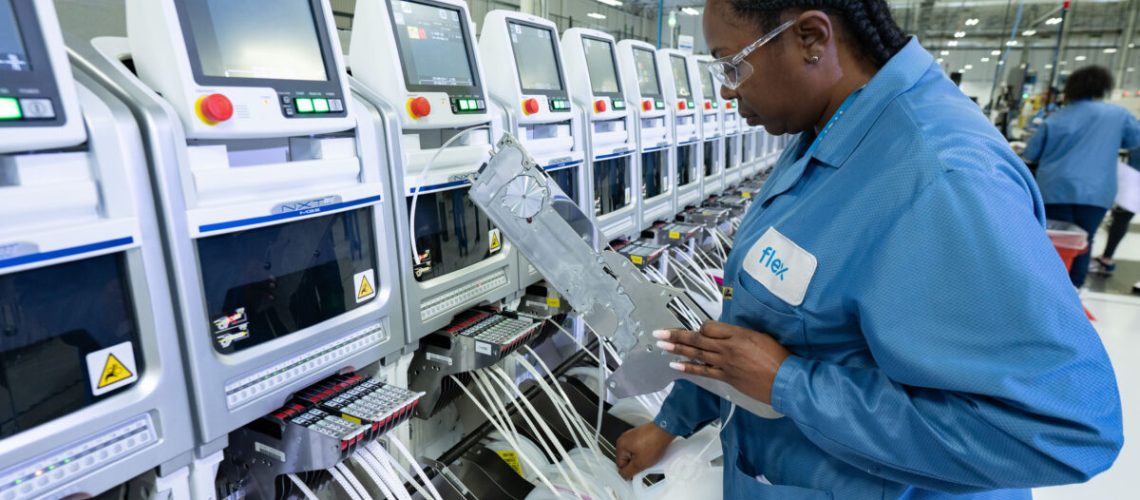A leader of a union whose members work in construction and maintenance said the union supported a moratorium on tariffs on certain imported solar panels, as domestic panel output increases, to preserve opportunities in solar construction and installation.
Two-thirds of jobs in the solar industry are in construction and installation, versus 13% in manufacturing, said a union leader on a webinar hosted by the American Clean Power Association (ACP).
“We’re a little concerned that the “tail” of manufacturing “could wag the dog,” said Jeff Soth, legislative and political director of the International Union of Operating Engineers, referencing his union’s support for a moratorium on solar panel tariffs that support domestic solar manufacturing. “We’ve adopted the ACP position,” he said.
Chiming in, Bill Parsons, American Clean Power (ACP) senior vice president and political director, said Soth had “articulated a really important principle, which I think our member companies would subscribe to, which is a very firm desire and commitment to reshore as much of the supply chain as we can, as quickly as we can, consistent with deployment.”
“If you cut off” foreign solar panel supply “too quickly,” Parsons said, “you haven’t really helped anything. You’ve just slowed down the construction jobs and the benefits for the grid and for the economy.” Parsons said companies are faced with a dilemma, “the choice to buy stuff that doesn’t exist yet.”
Two-thirds of operating engineers work in construction, Soth said, typically operating equipment such as cranes and backhoes, while one-third are maintenance engineers. Operating engineers work across all energy industries, he said.
Union support for projects
Turning to the potential for union support of new projects, Brad Markell, principal with Clean Energy Labor Advisors, said “you see some opposition” to both utility-scale solar projects and transmission projects. Yet “local unions, that are everywhere, are a key locus for local participation,” he said. Unions can add value “early in community involvement, because union members are living in these communities, and once they understand there’s a potential project coming through their area that they would like to work on, they become advocates.”
Soth said three unions had responded to a request from the solar industry, which led to a tri-trades agreement among the unions representing “the three essential crafts to build solar generation,” namely operating engineers, electricians and laborers. “We’re in the business of meeting the needs of owners and developers,” he said, “and they demanded, frankly, a streamlined project labor agreement with the three essential crafts, and that’s what we gave them.”
Wages, apprenticeships
“The skills and productivity” of union members, Soth said, give the union “a competitive edge, and frankly, allow us to command at the negotiating table the kinds of wages and benefits that our folks receive.”
Noting that a prevailing wage requirement is a condition for receiving energy tax credits, Soth said the requirement “provides some support for our role in the workplace and ensures that the green jobs of the future are, in fact, good jobs.” Clean energy industries have struggled, he said, “to be able to demonstrate that those are family sustaining jobs, particularly in the solar industry, historically, and that’s a function of residential deployment, small projects.”
Noting that women represent less than 25% of construction workers, Soth said his union is “doing everything we can” to recruit women and people of color into the trade, including marketing apprenticeships to students in high school. The operating engineers’ union offers training and apprenticeship programs.
“Apprenticeship is the primary pathway into a career in the operating engineers,” Soth said, adding that apprenticeship is “the best kept secret in career and vocational training.” He suggested that government investment in apprenticeship preparedness would be worthwhile, such as providing young people with “an introduction into the variety of craft unions out there and the opportunities that exist in the construction business.”



